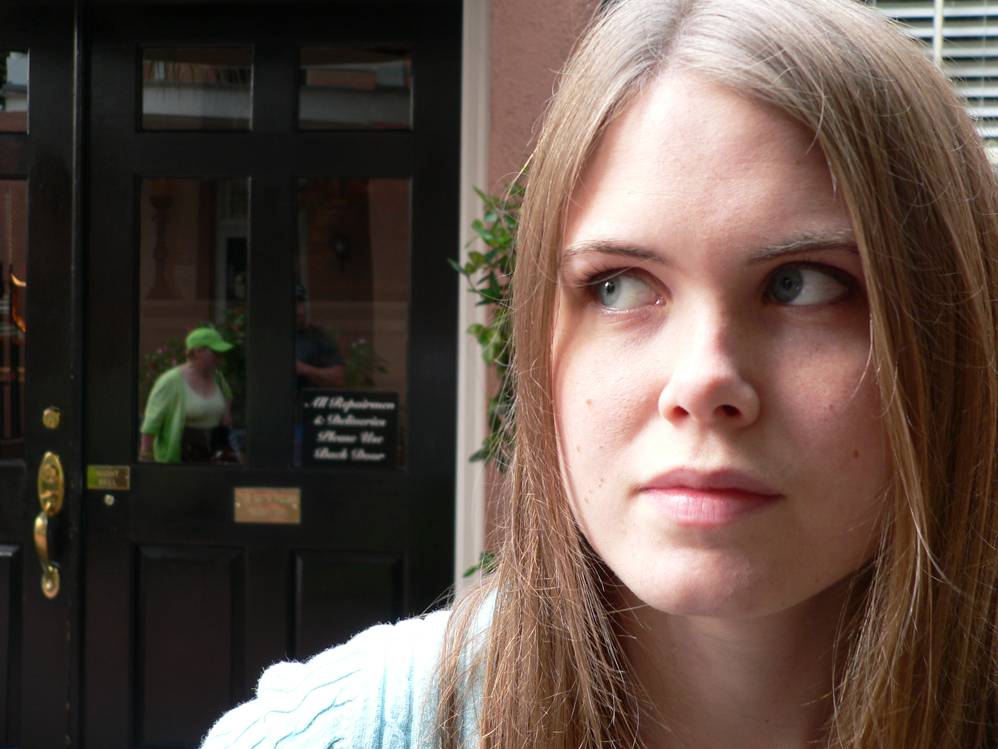My husband often says, “Stupid is easy.” Yes, it is easy to choose the wrong way of acting and oh, so very hard to choose the “higher road.” Another thing that is easy: To judge another person’s actions or motivations. It takes a strong will and much deliberate intention to do the hard thing: To give the benefit of the doubt.
The benefit of the doubt is defined as: “a concession that a person or fact must be regarded as correct or justified, if the contrary has not been proven.” I came across this story below, and I think of it often, especially when the temptation hits me to judge someone. It reminds me to judge my neighbor fairly. It teaches me that rather than assuming the worst, I should always assume the best…. even when it looks like they are doing something bad.
There once once a man who lived in the upper Galilee, and he needed money to support his wife and children. So, he decided to travel south to Judea. He found a job working for a wealthy land owner. At the end of three years, just before the holy festival of The Day of Atonement, he told the man, “I’ve worked for you for three years. I’m going back to my home. Please give me my wages.” The landowner replied, “I have no money.”
The man hesitated and said, “Well, if you have no money, you can pay me in the produce that you grow, and I will sell it for my wages.” The landowner replied, “I have no produce.”
The man frowned, and then said, “Well if you have no produce, give me some land. You have plenty of land here, and I will sell it and take my wages from that.” The landowner replied, “I have no land.”
The man was puzzled, but he tried again, “If you have no land, you could give me my wages in cattle and livestock.” The landowner replied, “I have no cattle and livestock.”
The man said, “Well in that case, I will settle for pillows and bedsheets and whatever you have.” The landowner replied, “I have none.”
The man finally gave up. He slung his few meager belongings over his shoulder and walked the long distance home with a sorrowful heart. What would his wife think when he came home penniless after three years of work?
After the Festival was over, the landowner took the man’s wages along with three donkeys, each carrying food and drink, to the man’s home. After they had eaten and drunk together, the landowner handed the man three years of wages, and asked, “When you asked for your wages, and I answered you, ‘I have no money,’ what did you think? Did you think I was trying to lie to you and cheat you out of your wages?”
The man answered, “I thought perhaps you had come across a good price on some valuable merchandise, and you had used all your available money to purchase it, leaving you temporarily penniless.”
The landowner asked, “And when you said, ‘Give me cattle,’ and I said, ‘I had none,’ did you think I was trying to cheat you?” The man replied, “No, I thought maybe you had hired all your cattle out to others.”
The landowner asked, “And when you asked for land, and I said, ‘I have none,’ did you think I was trying to cheat you then?” The man replied, “No, I thought you had perhaps leased out the land to people.”
“And when I told you I had no produce, of what did you suspect me?” The man replied, “I thought you hadn’t paid the tithes yet on the produce and therefore could not give it away or use it yet.”
The landowner asked, “And when I told you I had no pillows of what did you suspect me?” The man replied, “I thought, perhaps he has vowed his personal belongings to the Temple.” The landowner said, “Yes, I vowed away all my personal belongings because of my rebellious son. All of your guesses are correct. As soon as I could gather your wages, I came straight to you. Now as you judged me favorably, and gave me the benefit of the doubt, may God always judge you favorably.”
Two principles are very clear. 1) If we will give others the benefit of the doubt, God will give us the benefit of the doubt. 2) If we will give others the benefit of the doubt, others will give us the benefit of the doubt. Jesus said, “With the same measure you judge others, it will be measured to you.”1 So, if it seems like I’m having a difficult time in my relationship with the Lord or with others, maybe it is time to take a look to see if I am living these principles out.
The Scriptures says the “heart above all else is deceitful.”2 This teaches us that if we can’t even begin to understand our own motivations, desires or inner thoughts, how can we possibly judge someone else’s? It takes much effort and creativity to give the benefit of the doubt, like the man in the story who had to think of possible reasons for being treated unfairly. Yet, I wonder if it takes even more creativity to think the worst and then feel compelled to pass on the juicy, tender tidbits to others.
The way we think dictates our actions. Please Lord, let my mind give the benefit of the doubt.


Recent Comments